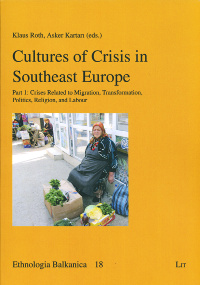Social Change in Relation to Patriarchy in the Post-1999 War in Opoja, Kosovo
Social Change in Relation to Patriarchy in the Post-1999 War in Opoja, Kosovo
Author(s): Elife KrasniqiSubject(s): Anthropology, Cultural Anthropology / Ethnology, Culture and social structure
Published by: LIT Verlag
Keywords: Kosovo; social change; patriarchy; family; joint household; migration; wedding ceremonies; education;
Summary/Abstract: The beginning of NATO strikes against Serbian military targets in Serbia and Kosovo on March 24, 1999, was followed by the expulsion of more than half a million Albanian civilians by the Serbian army, police, and paramilitary (HRW 2001). The two open corridors were Albania and Macedonia. This period, for many urbanites in Kosovo, marked the calendar as “before the war” and “after the war”, while in most rural areas this meant prior to 1998 and after 1999. The Albanian population of Opoja, Part of the Dragash municipality near the southern border of Kosovo, fled to Albania by trucks, tractors, cars and in some cases by foot in March 1999. Returning back to their homes later in 1999 marked the transition in this time period for many of those people. When talking about this, they say “Everything has changed after Albania”. Driven by empirical data collected during my fieldwork (2011–2013) in three villages of Opoja, this article will discuss the social change in relation to patriarchy in Opoja after the 1999 war. Changes will be presented from a micro level and will focus on changes in the family forms, impact of migration, and economy in family cycles such as marriage, as well as the education of women.
Journal: Ethnologia Balkanica
- Issue Year: 2015
- Issue No: 18
- Page Range: 191-206
- Page Count: 16
- Language: English
- Content File-PDF

